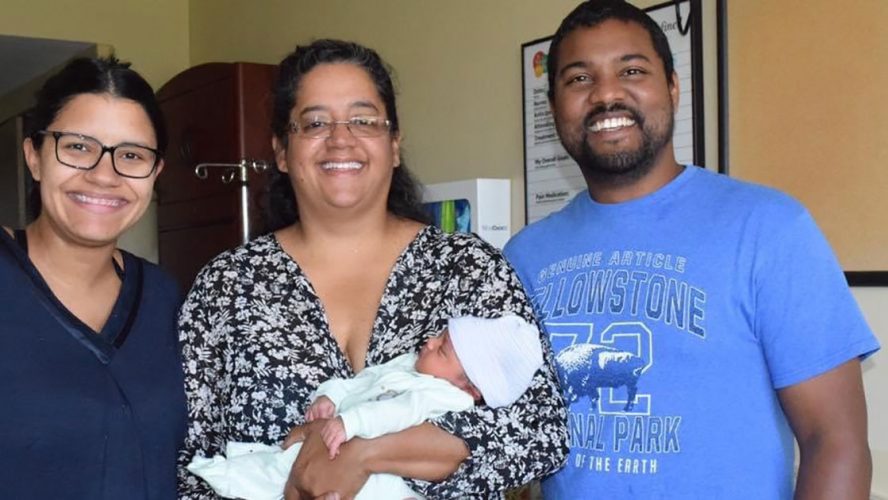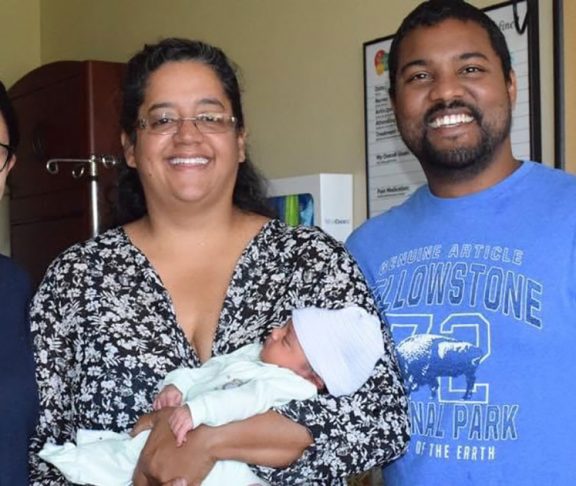When Luz Sheth and her husband were thinking about starting a family, they had an easier time than most finding the right medical professional to help them through the process.
As a labor and delivery nurse in Louisville, Kentucky, Sheth had worked regularly with nurse-midwife Damara Jenkins and saw firsthand how Jenkins’ patients benefited from her services.
“When I had my first delivery with Damara as a nurse, I remember just getting very emotional and coming straight home and telling my husband that when we have a child, we are going to use the midwife at work,” Sheth said. “For me, it was beautiful, intimate. And the more I worked with Damara, the more I knew that decision was just great for me and our family.”
So Sheth decided to become one of Jenkins’ patients. When Sheth got pregnant, Jenkins helped her throughout her pregnancy journey and the birth of her daughter, Aila. Two years later, Jenkins did the same when Sheth gave birth to her son Zain.
“She gave me that extra empowerment you need at that time,” Sheth said. “She helped me feel like, even though you might think this is gonna break you, you still have control over something.”
Ties that bind
As nurse-midwives offer care, advice, and advocacy during such an emotional and intimate time of life, it’s natural for patients to develop closer bonds with their midwives than other healthcare providers.
Jenkins and Sheth had a healthy working relationship before Sheth became a client, but they’ve become much closer over the past few years.
“My relationship with Luz is very different than with other nurses who I haven’t taken care of in that way,” Jenkins said.
As Jenkins sees it, there’s a fundamental difference between how nurse-midwives and physicians go about offering reproductive healthcare.
“Midwives treat pregnancy as just one of the normal life changes women undergo,” she said. “We practice from a wellness model instead of an illness model.”
For Sheth, having Jenkins as a nurse-midwife was completely different from any healthcare experience she had before.“They sit down, they listen,” Sheth said. “They give you all that you need to know education-wise, and let you use that knowledge to choose what’s best for you and keep with the way you want to go.”

